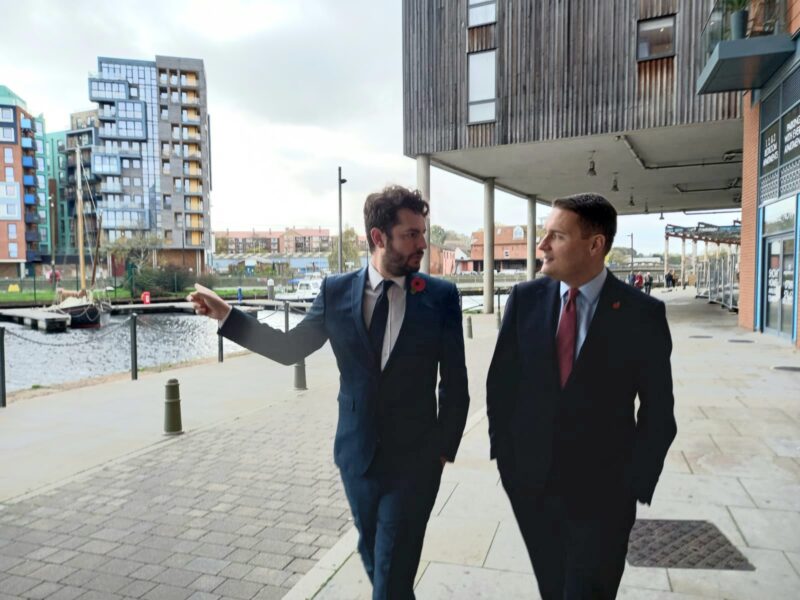
The Conservative Party’s Chairman recently drew a fierce reaction when he boasted that the country’s public services were ‘in good shape’.
It was an astonishing claim, and only reinforces the belief that the Government is completely removed from the realities faced by the rest of us.
We are all experiencing the consequences of our public services being eroded for more than a decade. In Ipswich and across Suffolk roads are crumbling, and many communities have seen their bus services disappear. There have been brutal cuts to crucial family support like children’s centres and health visitors. Children, teachers and schools are suffering from the Government’s severe neglect of education. Our justice system has been hollowed out, with victims being failed time and time again.
Then we come to the NHS – one of our country’s greatest institutions – and the wider healthcare system.
Nationally, 7.3 million people are on a waiting list, a record, while the East Suffolk and North Essex NHS Foundation Trust (ESNEFT) – which covers Ipswich Hospital – now has more than 80,000 patients waiting for treatment.
Of course, the pandemic put a huge strain on the NHS, but waiting lists were already growing prior to this. In fact, by early 2020, they had nearly doubled over the decade to around 4.5 million patients, while at ESNEFT they had more than tripled from 2012.
Everywhere you look, waiting times are spiralling out of control and the devastating truth is that this could be the difference between life and death for some people.
Thousands of people in Ipswich are having to wait more than a month for a GP appointment, while thousands more are spending in excess of four hours to be seen in A&E, with far too many having to wait, in pain, for over 12 hours.
More than a third of cancer patients do not start treatment within two months of an urgent GP referral, and targets haven’t been met since 2015.
For the ambulance service, people should wait for no more than seven minutes for a Category 1 call – responding to people with life-threatening injuries and illnesses – and 18 minutes for a Category 2 emergency call. In the East of England, the average wait times are nearly 13 minutes and 54 minutes, respectively.
To add to the devastation caused by the Conservatives: Suffolk is an NHS dentist desert, the mental health trust has been left in dire straits for years, the number of health visitors has halved since 2019, and the promise to ‘fix social care once and for all’ has been broken.
Even if Labour are successful at the next General Election, I am under no illusions about the task ahead in restoring our NHS and rebuilding our public services, especially given the bleak economic picture we are likely to inherit.
The health workers who deliver care are phenomenal, but they are being badly let down by a lack of support. The cap on medical places must be lifted, so we can train the next generation of doctors, nurses, and midwives. This will take time, and we have to improve pay and conditions to retain our existing medical staff, but enforcing such a low limit is causing severe shortages at the worst possible time.
More widely, there needs to be a greater focus on prevention. Our health system, from frontline NHS services to social care and mental health, needs to operate holistically, rather than in silos.
No, our public services are not in ‘good shape’. They are at breaking point. Yet, we cannot afford to say ‘this is too difficult to fix’. For too long, sticking plasters have been used to cover deep cuts – it’s time to make our public services, and our country, fit for the future.

